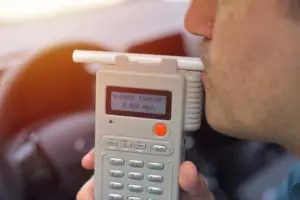
A preliminary alcohol screening (PAS) test is used by law enforcement to help determine whether a driving under the influence (DUI) arrest is warranted. PAS tests are administered as part of the initial steps of a DUI investigation.
An officer will use a portable breathalyzer device to measure the concentration of alcohol in a suspect’s breath. The results of this test will often guide the officer’s decision on whether or not to arrest a suspect on DUI charges.
Do Drivers Have to Submit to PAS Tests?
When drivers get stopped on suspicion of DUI, it is critical that they are aware of when they are required to take a chemical test and when they can decline. Preliminary alcohol screenings are administered before an arrest is made. Officers will often use these tests to determine whether or not an arrest is warranted. Additionally, these tests can be used as evidence in court.
However, in most cases, drivers are not required to submit to a PAS. Unless you are under the age of 21 or on probation for a prior DUI offense, you may politely decline to take a breathalyzer test if you have not yet been arrested.
If legally allowed, it is always advisable to decline this test, as it is inaccurate and can be used against you in court.
For a free legal consultation, call (310) 896-2723
Post-Arrest Chemical Tests
After an arrest, the rules change. While you can decline a PAS, after you have been arrested for a DUI, you are required to submit to a request for a chemical test. This test can take the form of a breath test or a blood test.
Post arrest breath tests are not performed using the same handheld breathalyzer used in PAS tests. These tests are either administered at the police station or a mobile unit set up at a DUI checkpoint. If you are asked to take a post-arrest breath test, you are allowed to ask for a blood test instead. If one is readily available, the police will administer this test instead.
Refusing to take a post-arrest chemical test could result in enhanced DUI penalties and a suspension of your driver’s license.
Reliability of PAS Tests
One of the many reasons to refuse a PAS is that these tests are not reliable. Unlike blood tests, breath tests do not directly measure the blood alcohol concentration (BAC) in the body. Instead, the breath testing device converts the breath alcohol levels into a roughly equivalent BAC.
There are strict regulations by which post-arrest breath testing operators must abide. However, these regulations do not apply to field tests performed by officers during roadside stops. Basically, this means that PAS tests are a poor version of an already inaccurate testing system. Blood tests are far more reliable.
Always Refuse a PAS if You Can Legally Do So
It is always in your best interest to refuse a PAS test. Because these tests are unreliable and can be used as evidence in court, there is no upside to taking the test. Even if you have not had anything to drink, a malfunction with the equipment could end up putting you in a difficult spot.
PAS tests, along with field sobriety tests, are designed to help give a police officer probable cause to make an arrest. Refusing to submit to any tests pre-arrest will only give officers fewer grounds for making an arrest. If they arrest you anyway, your attorney will likely be able to make a strong argument that you were arrested without probable cause.
Complete a Free Case Evaluation form now
Hire a DUI Attorney After an Arrest
When an officer places you under arrest for a DUI, it is critical that you hire an experienced DUI lawyer. At the Simmrin Law Group, we have successfully defended clients in countless DUI cases. We will challenge the validity of any PAS test to which you may have submitted and fight to get the charges against you dropped.
Call or text (310) 896-2723 or complete a Free Case Evaluation form
